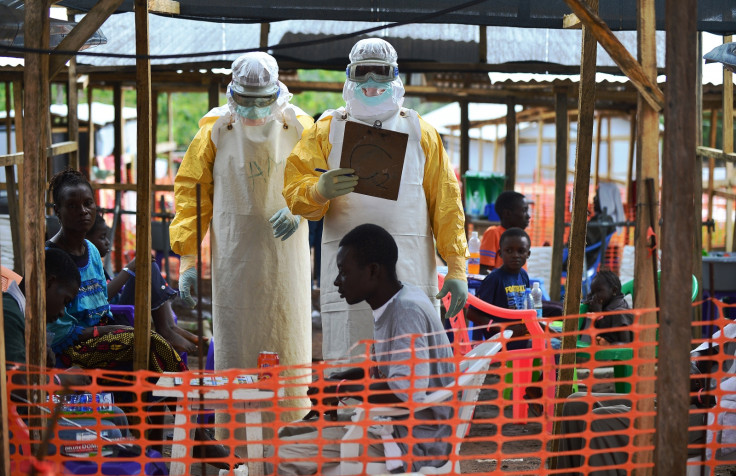Ebola Outbreak: Scientists Sequence Virus Genomes and Find Clues About Origin and Transmission of Disease

An international team of researchers have sequenced and analysed more than 99 Ebola virus genomes in response to an ongoing, unprecedented outbreak of the disease in West Africa.
The research, led by scientists at the Broad Institute and Harvard University, in collaboration with the Sierra Leone Ministry of Health and Sanitation, may give clues about the origin and transmission of the deadly virus.
For the study, researchers sequenced 99 Ebola virus genomes collected from 78 patients diagnosed with the virus in Sierra Leone during the first 24 days of the outbreak.
The team found more than 300 genetic changes that make the 2014 Ebola virus genomes distinct from those tied to previous Ebola outbreaks.
They also found sequence variations indicating that, from the samples, the outbreak started from a single introduction into humans, subsequently spreading from person to person.
Since it was first reported in Guinea in March 2014, 2,240 cases have been reported with 1,200 deaths.
Augustine Goba, director of the Lassa Laboratory at the Kenema Government Hospital and a co-first author of the paper, identified the first Ebola virus disease case in Sierra Leone.
"We established surveillance for Ebola well ahead of the disease's spread into Sierra Leone and began retrospective screening for the disease on samples as far back as January of this year," said Goba.
"This was possible because of our long-standing work to diagnose and study another deadly disease, Lassa fever. We could thus identify cases and trace the Ebola virus spread as soon as it entered our country."
In the study, researchers sequenced at a depth of 2,000 times on average for each Ebola genome to get an extremely close-up view of the virus genomes from 78 patients.
This high-resolution view allowed the team to detect multiple mutations that alter protein sequences - potential targets for future diagnostics, vaccines and therapies.
The Ebola strains responsible for the current outbreak are likely to have a common ancestor, dating back to the very first recorded outbreak in 1976.
The researchers revealed the lineage responsible for the current outbreak diverged from the Middle African version of the virus within the last decade and spread from Guinea to Sierra Leone by 12 people who had attended the same funeral.
The team's catalog of 395 mutations (over 340 that distinguish the current outbreak from previous ones and over 50 within the West African outbreak) may serve as a starting point for other research groups.
"We've uncovered more than 300 genetic clues about what sets this outbreak apart from previous outbreaks," said researcher Stephen Gire.
"Although we don't know whether these differences are related to the severity of the current outbreak, by sharing these data with the research community, we hope to speed up our understanding of this epidemic and support global efforts to contain it."
The study was published in the journal Science.
© Copyright IBTimes 2025. All rights reserved.






















